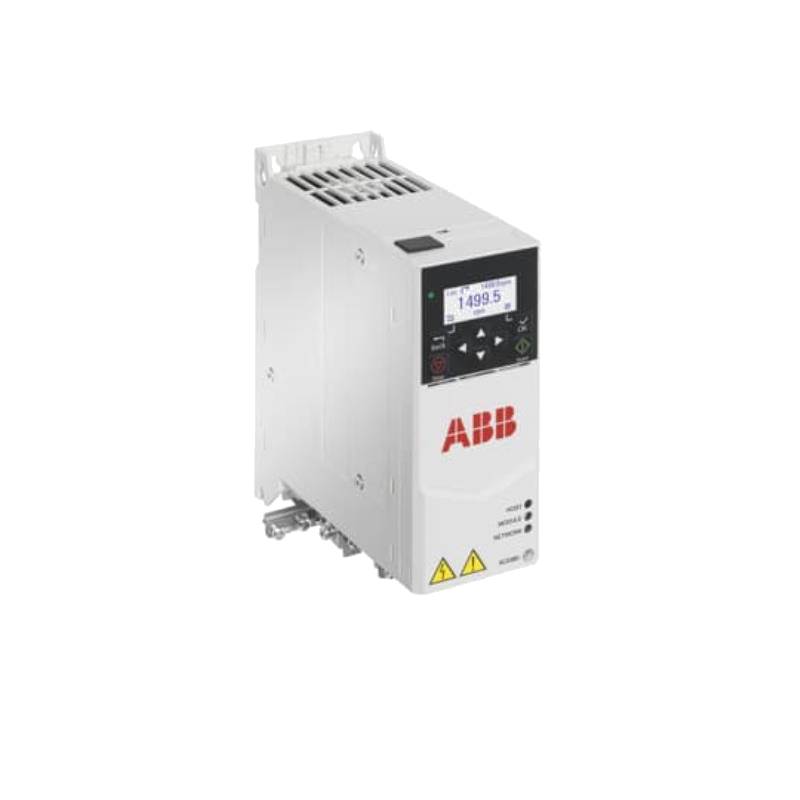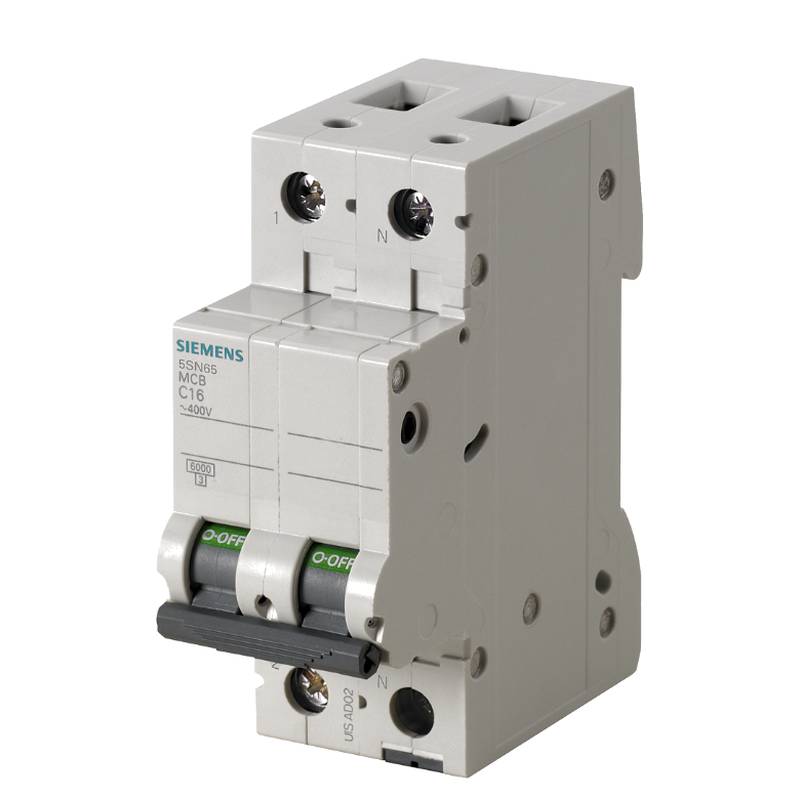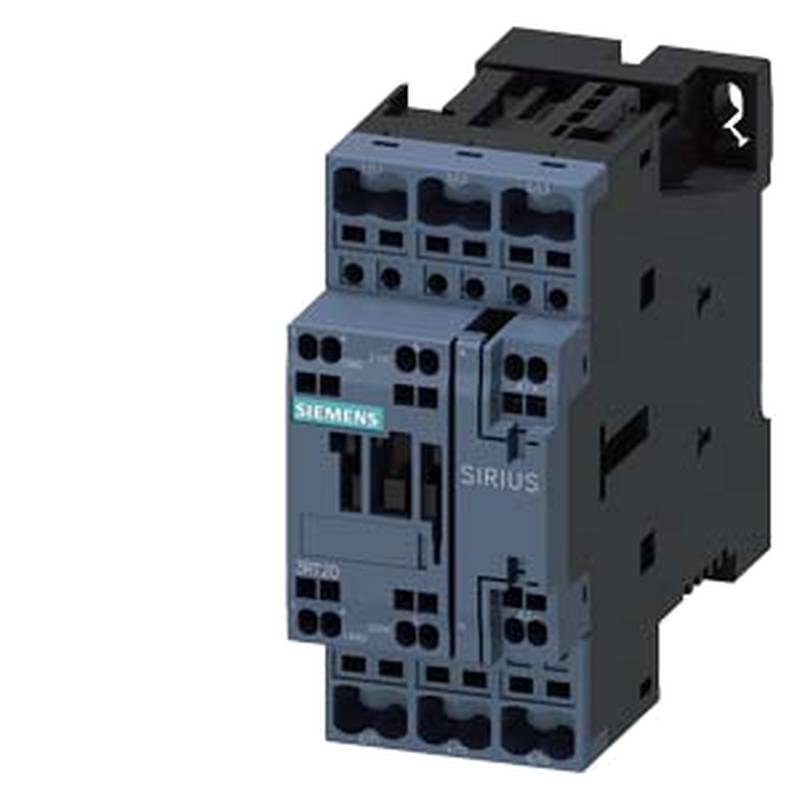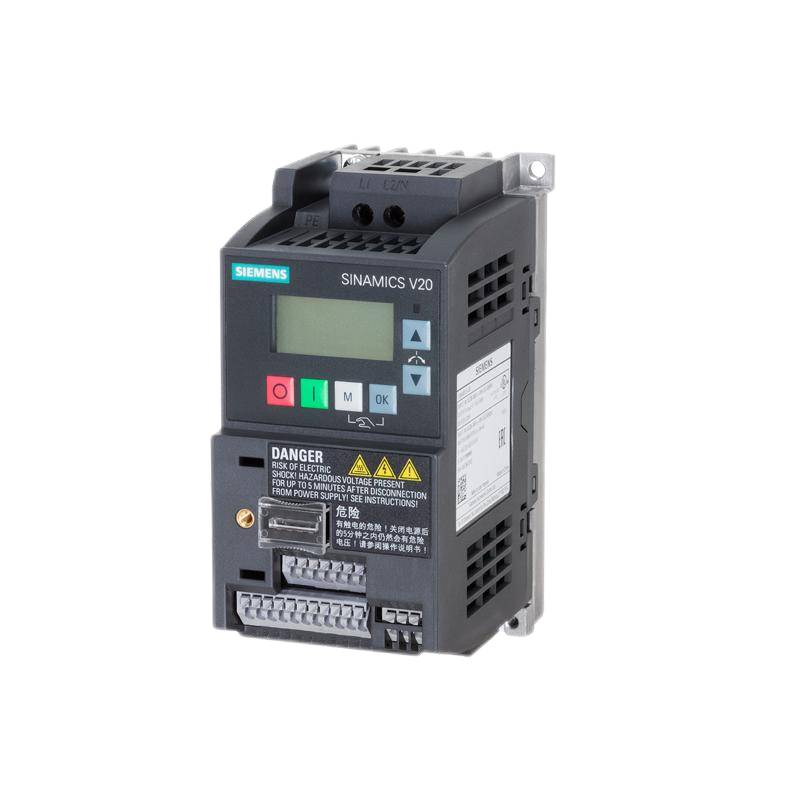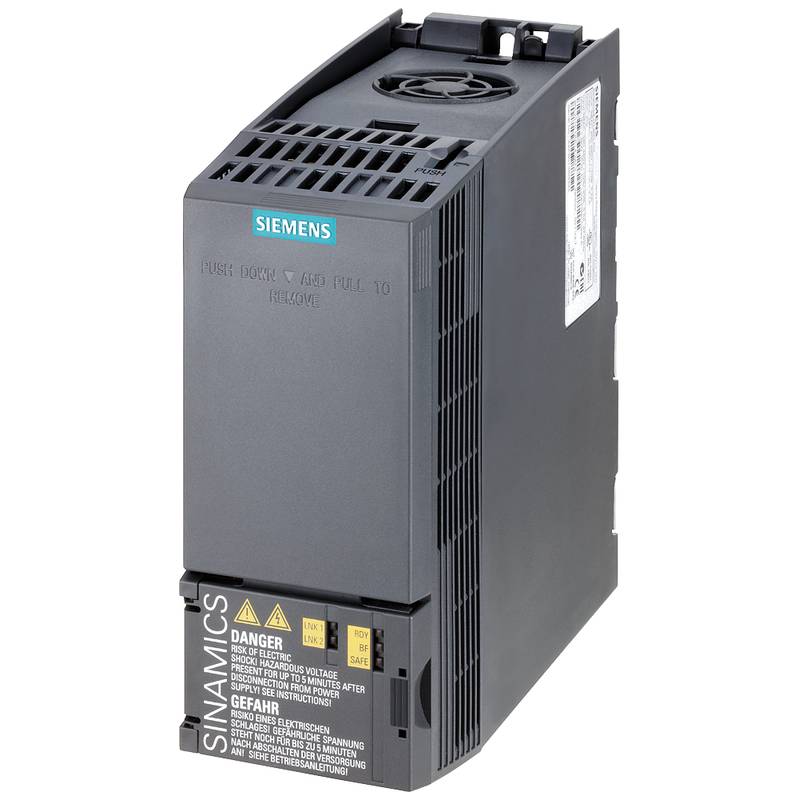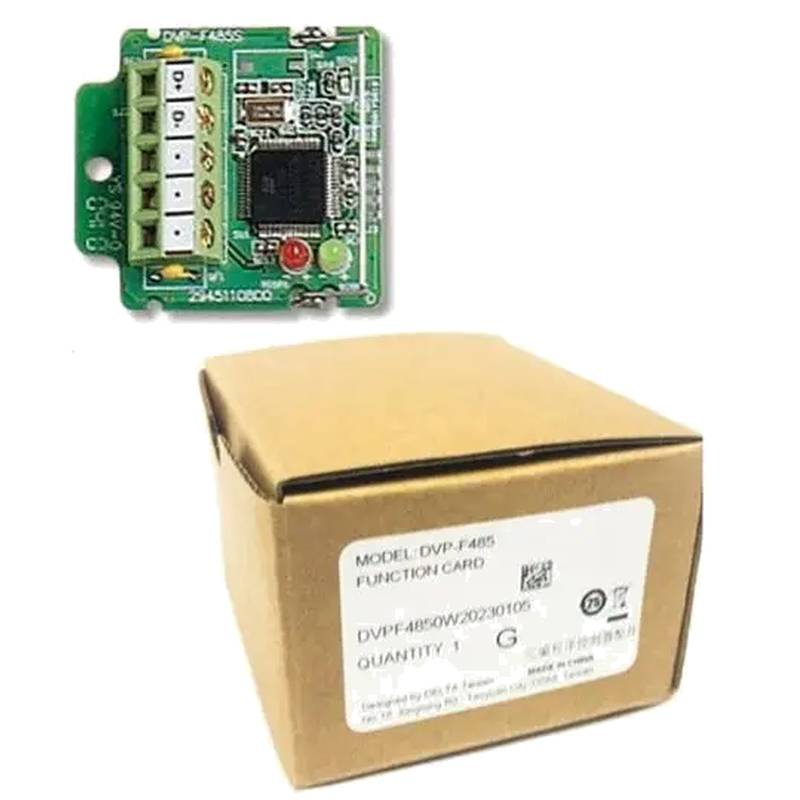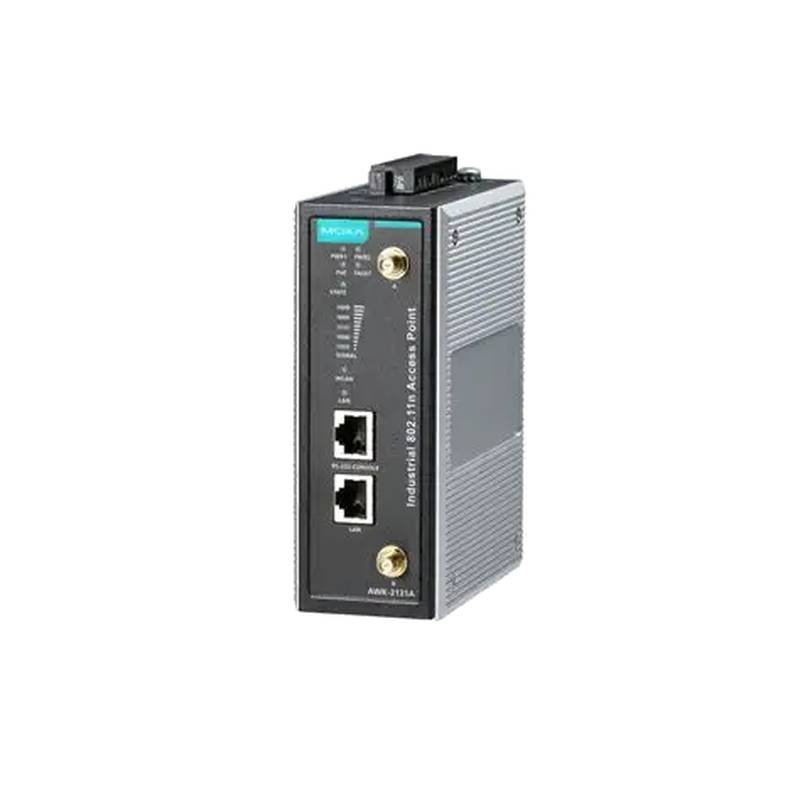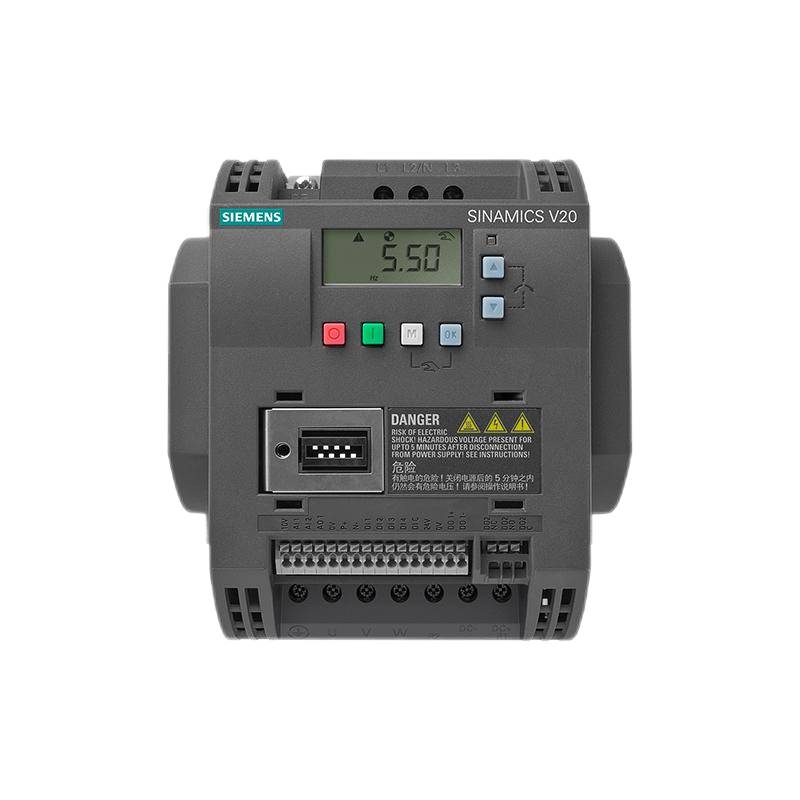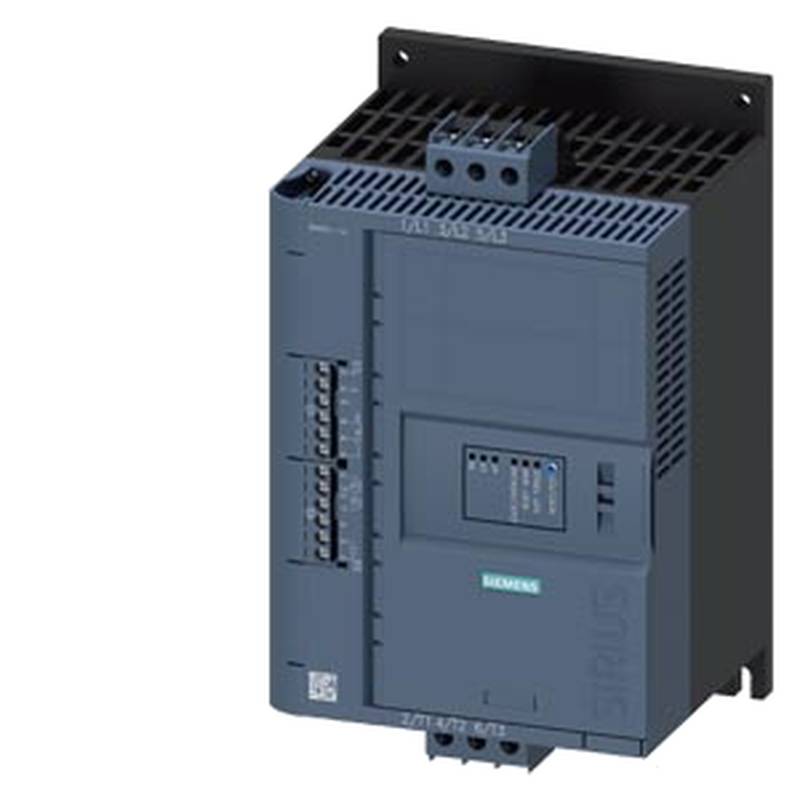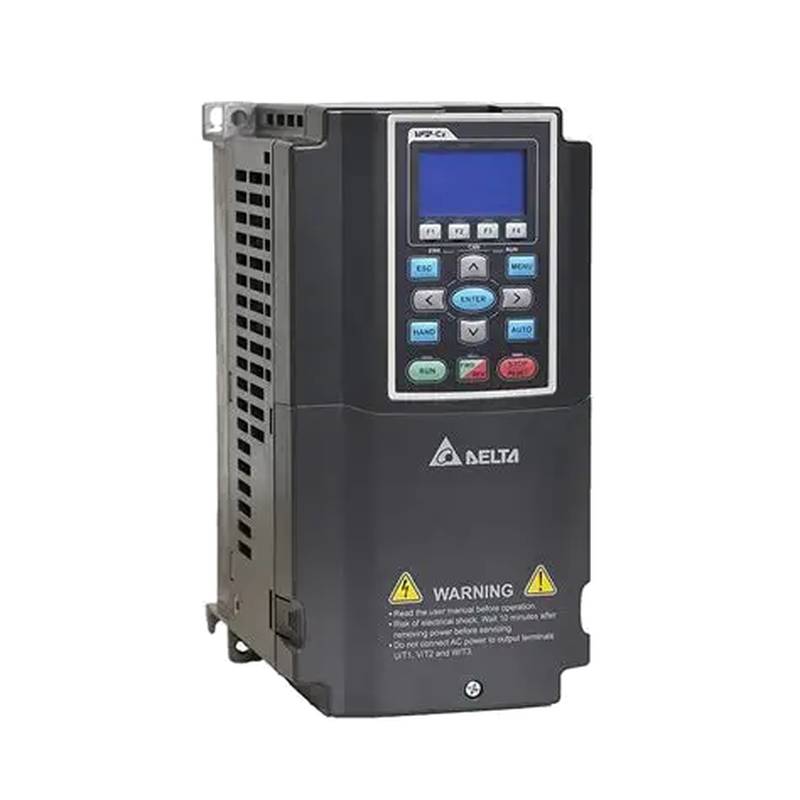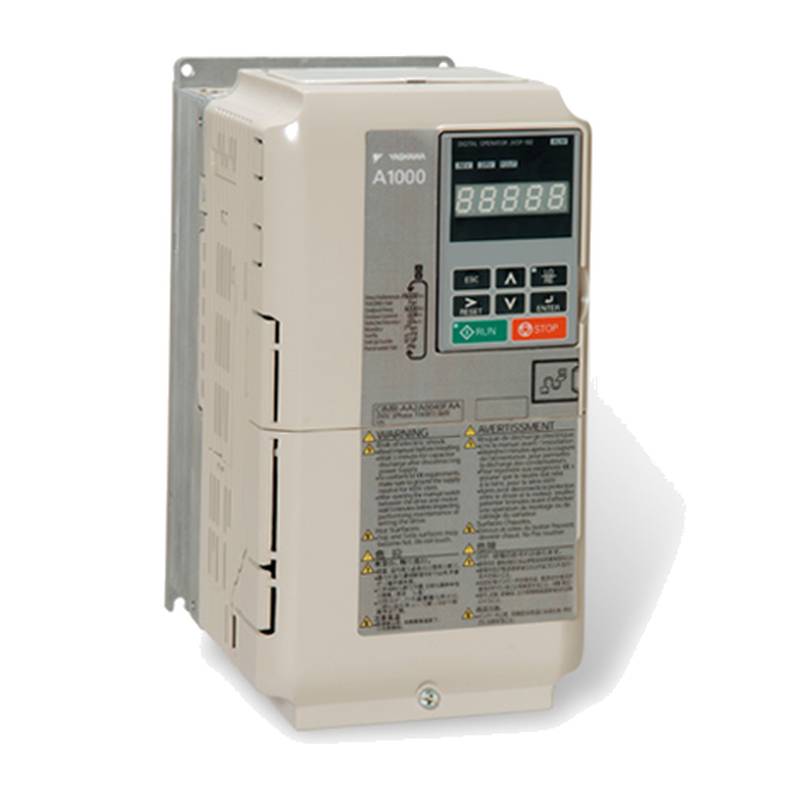
The ABB ACS380-040S-04A0-4 is a robust and versatile standard inverter designed for a wide range of industrial automation applications. This 4A, 1.5kW drive excels in providing precise motor control, enhanced energy efficiency, and reliable operation. Key advantages include its compact design, user-friendly interface, and advanced protection features. Crucial technical parameters include its IP20 enclosure rating, ambient operating temperature range of -10°C to +50°C, and a nominal output current of 4.0A, supporting motors up to 1.5kW. The ACS380 series is engineered for simplicity in installation, commissioning, and operation, making it an ideal choice for original equipment manufacturers (OEMs) and system integrators seeking a dependable and cost-effective motor control solution.
Product Specifications
| Parameter | Value |
| :-------------------- | :-------------------------------------- |
| Model | ACS380-040S-04A0-4 |
| Rated Output Power | 1.5 kW (2.0 hp) |
| Nominal Output Current| 4.0 A |
| Supply Voltage | 380-480 V, 3-phase |
| Enclosure Type | IP20 |
| Mounting | Wall, DIN rail |
| Ambient Temperature | -10°C to +50°C |
| Dimensions (H x W x D)| 240 x 142 x 156.5 mm |
| Weight | 2.4 kg |
| Control Method | V/f, Flux Vector Control |
| Digital Inputs | 6 |
| Digital Outputs | 2 |
| Analog Inputs | 2 |
| Analog Outputs | 1 |
Core Features & Market Positioning
The ABB ACS380-040S-04A0-4 distinguishes itself in the industrial automation market through its inherent ABB quality and a focus on essential functionalities without unnecessary complexity. Its robust construction and adherence to high manufacturing standards ensure longevity and consistent performance, even in demanding environments. The drive’s integrated programmable logic controller (PLC) capabilities allow for basic automation tasks to be handled directly within the inverter, reducing the need for external control components and simplifying system architecture. This positions the ACS380 as a highly competitive option for applications where reliability, ease of use, and a controlled feature set are paramount. It offers a compelling blend of advanced control algorithms, such as Flux Vector Control, with straightforward parameterization, catering to both experienced engineers and those new to variable speed drive technology.
Key Application Scenarios
This versatile drive finds extensive use across numerous industrial sectors. In the food and beverage industry, the ACS380-040S-04A0-4 is ideal for conveyor systems, pumps, and mixers where precise speed control and hygienic operation are crucial. For material handling, it powers conveyors, cranes, and automated guided vehicles (AGVs), ensuring smooth acceleration and deceleration, thereby minimizing mechanical stress. In water and wastewater treatment, the drive effectively controls pumps for filling and emptying tanks, managing flow rates, and optimizing energy consumption. Furthermore, its suitability for general machine building applications, including packaging machinery, textile equipment, and printing presses, underscores its adaptability. The drive’s ability to handle variable loads and provide reliable torque control makes it a go-to solution for OEMs and end-users seeking to enhance the performance and efficiency of their machinery.
Practical System Integration Guidance
Integrating the ABB ACS380-040S-04A0-4 into existing or new systems is streamlined due to its user-friendly design. Installation typically involves mounting the drive vertically on a wall or a DIN rail, ensuring adequate ventilation. Electrical connections require careful attention to power supply wiring (L1, L2, L3), motor connections (T1, T2, T3), and grounding. The digital and analog I/O terminals can be configured for various control signals, such as start/stop, speed reference, and feedback. For initial commissioning, the intuitive control panel allows for direct parameter setting. Alternatively, ABB's Drive Composer tool, via a USB connection, facilitates more complex programming, parameter backup, and firmware updates, significantly reducing setup time. When connecting multiple drives or integrating with a PLC, communication protocols like Modbus RTU can be utilized, ensuring seamless data exchange and centralized control.
Operation and Risk Mitigation
Operating the ABB ACS380-040S-04A0-4 is facilitated by its clear human-machine interface (HMI), displaying real-time drive status and motor parameters. The drive incorporates comprehensive protection functions to mitigate risks and ensure safe operation. These include motor overload protection, short-circuit protection, overvoltage and undervoltage protection, and thermal monitoring. Critical fault codes are clearly displayed on the HMI, aiding in rapid diagnostics and troubleshooting. For instance, a "motor overload" fault (F001) indicates the motor is drawing too much current, requiring investigation into motor load or drive settings. Proper grounding and adherence to wiring regulations are paramount to prevent electrical hazards. Regular inspection of connections and environmental conditions, such as temperature and humidity, will further enhance the drive's operational safety and longevity.
Scalability & Long-Term Value
The ABB ACS380-040S-04A0-4 offers significant long-term value through its inherent scalability and compatibility. While a standard inverter, its robust feature set, including programmable logic, allows for future expansion of control functionalities within the drive itself. For more complex integration needs, it seamlessly interfaces with ABB's broader automation portfolio and various industrial control systems via standard communication protocols. This ensures that as operational requirements evolve, the drive can remain a central component of the automation architecture. Furthermore, ABB's commitment to developing intelligent, connected solutions means the ACS380 is designed with future Industrial Internet of Things (IIoT) integration in mind, enabling remote monitoring, diagnostics, and predictive maintenance when coupled with appropriate gateway devices. This foresight protects the investment and ensures the drive contributes to efficient, data-driven operations for years to come.
FAQs
What is the primary function of the ABB ACS380-040S-04A0-4 inverter?
The primary function is to control the speed and torque of electric motors efficiently. It allows for variable speed operation, saving energy and optimizing machine performance.
It converts fixed frequency AC power to variable frequency and voltage AC power for motor control. This enables precise speed adjustments beyond simple on/off operation.
The drive also offers motor protection features, soft start/stop capabilities, and can be programmed for specific automation tasks, enhancing overall system reliability and flexibility.
How do I connect a motor to the ABB ACS380-040S-04A0-4?
Connect the motor's power leads to the T1, T2, and T3 terminals on the drive. Ensure correct phase sequence for standard motor rotation.
Always refer to the drive's manual for specific wiring diagrams and torque recommendations for terminal connections. Proper grounding is also essential for safety and performance.
Verify motor nameplate data against the drive's configured parameters for optimal performance and to prevent damage. Incorrect wiring can lead to motor failure or drive malfunction.
What are the main advantages of using the ACS380 drive over fixed-speed motors?
Variable speed control leads to significant energy savings, especially in pump and fan applications. It also reduces mechanical stress on equipment during startup.
The drive allows for precise process control, improving product quality and consistency. Features like soft start/stop prevent sudden jolts, extending machinery lifespan.
It offers enhanced operational flexibility, enabling machines to adapt to different production speeds or requirements without complex mechanical changes.
Can the ABB ACS380-040S-04A0-4 be used for pump and fan applications?
Yes, the ACS380 is highly suitable for variable torque applications like pumps and fans. Its advanced control modes optimize performance and energy efficiency in these scenarios.
The drive's ability to precisely match motor speed to system demand significantly reduces power consumption compared to fixed-speed operation with throttling.
It provides features beneficial for fluid handling, such as built-in PID controllers for maintaining setpoint pressure or flow, and minimum speed settings.
What is the typical power rating and current capacity of this specific model?
This model, the ACS380-040S-04A0-4, is rated for 1.5 kW (2.0 hp) motor output power. Its nominal output current capacity is 4.0 Amperes.
This current rating is crucial for selecting the correct motor size and ensuring the drive can safely handle the motor's operational load. Always consider the motor's full load amperage (FLA).
The drive is designed for 380-480V, 3-phase power supplies, common in industrial settings, and its current rating is specified under typical operating conditions.
How do I set up the basic parameters on the ACS380 for initial operation?
Access the drive's control panel and navigate through the parameter menu. Start with motor data entry, including rated power, voltage, and frequency.
Configure essential parameters like minimum and maximum speed limits, acceleration/deceleration times, and the desired control mode (e.g., V/f or Flux Vector).
After parameter setup, perform a motor auto-tuning procedure if applicable to optimize performance based on the connected motor's characteristics.
What type of motor control methods does the ACS380 support?
The ACS380 supports both V/f (Volts per Hertz) control and more advanced Flux Vector Control (FVC). V/f control is simpler and suitable for many applications.
Flux Vector Control provides superior dynamic performance, better torque control at low speeds, and improved efficiency, especially for demanding applications with varying loads.
The drive's flexibility allows users to select the control method that best suits their specific application requirements and motor type.
What are the environmental operating conditions for the ACS380-040S-04A0-4?
The drive operates within an ambient temperature range of -10°C to +50°C (14°F to 122°F). Ensure adequate ventilation to maintain this temperature range.
It is designed with an IP20 enclosure, offering protection against solid objects larger than 12.5 mm but not against water ingress. It should be installed in a clean, dry environment.
Humidity levels should be considered; generally, non-condensing conditions are required to prevent internal damage and ensure long-term reliability.
How does the ACS380 contribute to energy efficiency?
By precisely controlling motor speed, the ACS380 allows systems to operate at the exact speed required, rather than running at full speed and wasting energy.
It utilizes advanced control algorithms to minimize energy losses within the drive and the motor itself, particularly under partial load conditions.
The drive’s ability to implement soft starting and stopping also reduces peak current draws, which can lower overall energy costs and reduce stress on the power supply.
What safety features are integrated into the ABB ACS380-040S-04A0-4?
The drive includes essential motor protection features such as overload, short-circuit, and over/under-voltage protection to prevent damage.
It also provides thermal monitoring for the motor and the drive itself, helping to prevent overheating and potential failures.
Safety functions like Safe Torque Off (STO) can be optionally integrated, allowing for a safe shutdown of the motor without power cycling the drive, crucial for operator safety.














